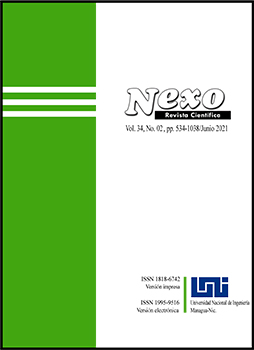The impact study of the role of job rotation system effectiveness on work enthusiasm
DOI:
https://doi.org/10.5377/nexo.v34i02.11567Keywords:
job rotation, human capital development, changes in human capital, work enthusiasmAbstract
In today's world, human capital is considered as the highest and most valuable asset of an organization, which affects the profits and losses of any company. The organizations that exist in these societies must be able to utilize human resources effectively. Job rotation is one of the management measures in the field of human resource management. It can create a creative, ideal, and secure organization that ensures commitment, knowledge transfer, skills acquisition, innovation, creativity, experience, job satisfaction, enthusiasm, exhaustion reduction, and human capital growth. The aim of this study is to investigate the effect of job rotation system on work motivation (studied in the region of two gas transfer operations). The present study is a correlation from the field and in terms of purpose and nature of application and in terms of descriptive-survey method and in terms of cross-sectional time. The statistical population of the study is 850 personnel (managers, experts and employees) of the region of two gas transmission operations. Using Cochran's formula, the sample size for limited communities is 285 people. The statistical population of the study consists of heterogeneous groups (formal and informal forces, managers and employees) using stratified random sampling method. In order to collect data, a researcher-made questionnaire with 20 items and a standard job motivation questionnaire with 17 items were used. The questionnaire is divided based on a five-point Likert scale. Reliability and validity were calculated and the value of 0.881 was obtained, which indicates the appropriate reliability of the questionnaires. To investigate the relationship and research hypotheses, Pearson correlation coefficient and regression, SPSS software and LISREL software were tested. The results show that the dimensions of job rotation such as human capital development and changes in human capital are related to work enthusiasm. Pearson correlation coefficient is 0.842 and 0.368, respectively, which indicates a good correlation. Also, the development and changes of human capital have a significant effect on job motivation and the standard beta value was 0.343 and 0.281, respectively, and all research hypotheses have been confirmed.
Downloads
3014
Downloads
Published
How to Cite
Issue
Section
License
The authors who publish in Nexo Scientific Journal agree to the following terms:
- Authors retain the copyright and grant the journal the right of the first publication under the license Creative Commons Attribution License, which allows others to share the work with a recognition of the authorship of the work and the initial publication in Nexo Scientific Journal.
- Authors may separately establish additional agreements for the non-exclusive distribution of the version of the work published in the journal (for example, in an institutional repository or a book), with the recognition of the initial publication in Nexo Scientific Journal.
- Authors are allowed and encouraged to disseminate their works electronically (for example, in institutional repositories or in their own website) before and during the submission process, as it can lead to productive exchanges, as well as earlier and greater citation of published works.










